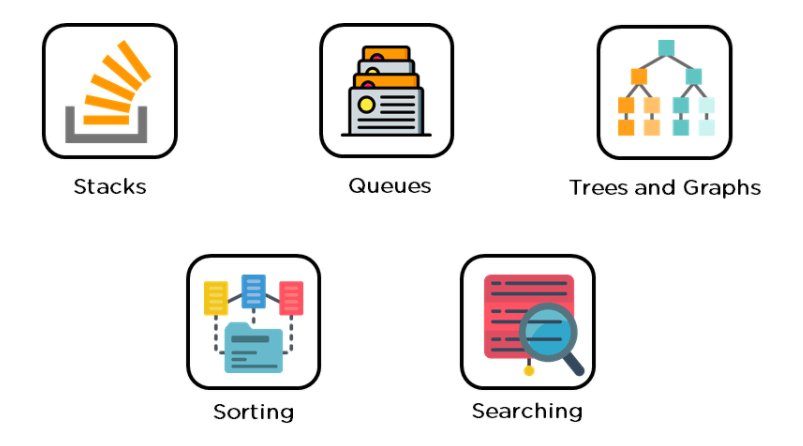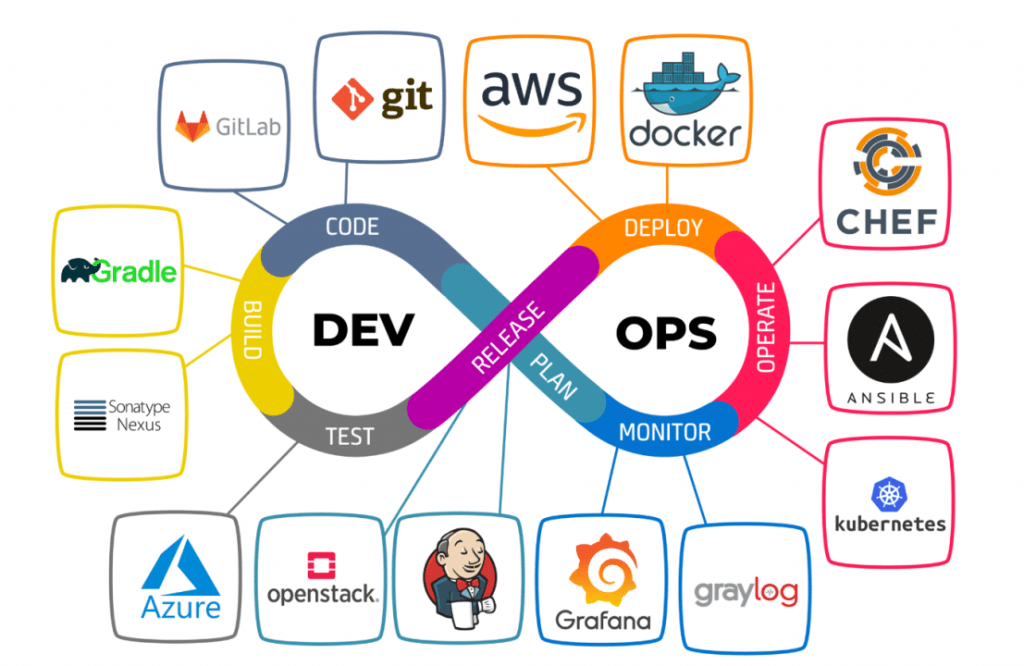
- Introduction toSoftware Engineering types
- Frontend Software Engineer
- Backend Software Engineer
- Full Stack Software Engineer
- DevOps Engineer
- Mobile App Developer
- Systems Engineer
- Security Engineer
- Data Engineer
- Machine Learning Engineer
- Quality Assurance Engineer
Introduction to Software Engineering types
Software engineering is a dynamic and multifaceted field that involves developing, designing, testing, and maintaining software applications and systems. With the evolution of technology and the increasing demand for innovative software solutions, software engineering has diversified into numerous specialized Web Designing and Development Courses . Each role serves a unique function within the software development lifecycle, ensuring that products meet user needs and are efficient, secure, and scalable. This article will explore variousSoftware Engineering types, their responsibilities, required skills, and career opportunities in each.
Frontend Software Engineer
A Front-End Software Engineer is responsible for designing and implementing the user interface (UI) and user experience (UX) aspects of a web application or software product. They focus on ensuring that the software is visually appealing, intuitive, and easy to navigate. Front-end engineers work closely with designers and frontend and backend engineers to translate a product’s visual components into a functional and responsive interface. Implementing UI designs using HTML, CSS, and JavaScript. Building interactive components with frameworks like React, Angular, or Vue.js. Ensuring cross-browser compatibility and mobile responsiveness. Optimizing the application for speed and scalability. Working closely with UX/UI designers to refine the user experience. Debugging and troubleshooting issues related to the frontend. Skills Required:Proficiency in HTML, CSS, JavaScript, and React Native and Barcode frontend frameworks (React, Angular, Vue.js). Knowledge of version control systems like Git. Familiarity with frontend build tools like Webpack, Babel, and npm. Understanding of responsive design principles and mobile-first development. Basic understanding of UX/UI principles. Frontend engineers are in high demand as user interfaces become the cornerstone of software products. Companies need developers to create engaging, fast, and accessible web applications.
Advance your Web Development career by joining this Web Developer Certification Courses now.
Backend Software Engineer
A backend Software Engineer focuses on the server-side logic, databases, and APIs that power a software application’s front end. These engineers are responsible for designing and implementing the architecture that ensures the system is efficient, secure, and scalable. backend Software Engineer work closely with frontend developers and DevOps teams to integrate the application’s various layers.
Key Responsibilities:
- Writing and maintaining server-side code using Python, Java, Ruby, or Node.js.
- Designing and managing databases like MySQL, PostgreSQL, MongoDB, or Cassandra.
- Creating and keeping APIs (RESTful or GraphQL) to Full Stack Developer Resume communication between the frontend and backend.
- Optimizing the performance and scalability of applications.
- Handling authentication, authorization, and security aspects of the application.
- Writing unit and integration tests for backend functionality.
- Proficiency in backend programming languages (Python, Java, Node.js, Ruby, C#).
- Strong knowledge of databases and data storage mechanisms (SQL and NoSQL).
- Experience with API development and integration.
- Familiarity with cloud services like AWS, Azure, or Google Cloud.
- Strong problem-solving skills and debugging techniques. backend engineers are essential for ensuring the application functions properly and scales to meet user demand.
- Their role is critical in ensuring that all parts of the application work cohesively, from data storage to server-side logic.
- Automating the build, testing, and deployment pipelines.
- Managing cloud infrastructure and container orchestration (using tools like Docker, Kubernetes).
- Ensuring the system’s scalability and reliability through monitoring tools.
- Collaborating with development teams to identify and resolve problems related to deployment.
- Maintaining version control systems and CI/CD pipelines.
- Strong experience with automation tools (Jenkins, GitLab CI, Ansible, Chef, Puppet).
- Proficiency in cloud infrastructure management (AWS, Google Cloud, Azure).
- Knowledge of containerization technologies (Docker, Kubernetes).
- Familiarity with infrastructure-as-code tools (Terraform, CloudFormation).
- Experience with monitoring tools (Prometheus, Grafana).
- DevOps engineers play a crucial role in modern software development. They ensure that teams can deploy code efficiently, maintain system stability, and scale applications as needed.
- Designing, implementing, and managing security protocols for systems and networks.
- Performing security audits and penetration tests.
- Identifying and mitigating security risks and vulnerabilities.
- Ensuring compliance with security standards and regulations.
- Responding to security incidents and developing incident response plans.
- Knowledge of security protocols and encryption methods.
- Familiarity with penetration testing and vulnerability assessment tools.
- Understanding of firewalls, intrusion detection State Management in ASP.NET, and other security tools.
- Experience with security compliance standards (ISO 27001, GDPR, HIPAA).
- Proficiency in security scripting and automation.
- Security engineers play a critical role in ensuring the confidentiality, integrity, and availability of an organization’s data and infrastructure and protecting it from evolving cyber threats.

Skills Required:
Equip yourself with real-world skills and projects in web development through this top-rated Web Developer Certification Course.
Full Stack Software Engineer
A Full-Stack Software Engineer combines the skills of both Frontend Software Engineer and backend engineers. They can handle both the user interface (UI) and the underlying server-side logic of a software application. Full-stack engineers are highly versatile and can work across the entire software development stack, Node.js Developer them valuable assets in agile and cross-functional teams. Key Responsibilities Designing, developing, and maintaining the application’s frontend and backend components. Integrating APIs and databases into the software system. Ensuring the application is scalable, efficient, and user-friendly. Collaborating with designers, backend Software Engineer, and DevOps teams to deliver a cohesive product. Handling deployment and monitoring of the software in production. Strong knowledge of Frontend Software Engineer(TML, CSS, JavaScript, React, Angular) and backend (Node.js, Python, Java) technologies. Proficiency in database management (SQL and NoSQL). Familiarity with cloud services (AWS, Google Cloud, Azure). Experience with version control (Git) and CI/CD pipelines. Understanding of agile development methodologies.
Full-stack engineers can take on diverse tasks, from building responsive user interfaces to designing scalable server-side applications. Their wide-ranging skill set makes them highly sought after in startups and larger companies.DevOps Engineer
A DevOps Engineer is responsible for bridging the gap between development and operations. Their role is to automate and streamline the process of building, testing, deploying, and monitoring applications. DevOps engineers ensure the development process is efficient, with fast release cycles, while Web Developer Certification Courses high availability and scalability of systems.
Key Responsibilities:
Skills Required:

Mobile App Developer
A Mobile App Developer focuses on creating applications for mobile devices, such as smartphones and tablets. These developers design and develop apps for platforms like iOS and Android. frontend and backend must consider unique aspects such as limited screen space, battery consumption, and device compatibility while ensuring a smooth user experience. Developing native or hybrid mobile apps for iOS and Android. Writing and optimizing code for performance, stability, and scalability. Integrating APIs and third-party DevOps vs Full Stack into the app. Ensuring the app is responsive, intuitive, and user-friendly. Testing and debugging applications for performance and usability. Experience with mobile development frameworks (Android Studio, Xcode, Flutter). Familiarity with mobile UI/UX design principles. Strong knowledge of API integration and third-party SDKs. Understanding of mobile app deployment on the App Store and Google Play. Mobile app developers are essential for building applications on various mobile devices, offering businesses a way to connect directly with users through their smartphones and tablets.
Become a Web Development expert by enrolling in this Web Development Training today.
Systems Engineer
A Systems Engineer is responsible for designing and maintaining complex systems and networks that support an organization’s operations. This includes overseeing the integration of hardware and software components, ensuring they work together seamlessly to meet business needs. Systems engineers play a key role in JavaScript Callback Functions systems’ performance, reliability, and scalability. Designing and managing IT infrastructure, including servers, networks, and storage. Ensuring the security, scalability, and availability of systems. Managing system upgrades, backups, and disaster recovery processes. Collaborating with other engineers to integrate hardware and software systems. Troubleshooting and resolving system issues. Knowledge of system architecture, networking, and cloud computing. Experience with virtualization technologies (VMware, Hyper-V). Proficiency in scripting languages (Bash, Python). Familiarity with system monitoring and management tools. Understanding of system security and performance optimization. Systems engineers ensure that an organization’s IT infrastructure is designed to be robust, scalable, and efficient, enabling smooth business operations.
Preparing for a job interview? Explore our blog on Web Development Interview Questions and Answers!
Security Engineer
A Security Engineer protects an organization’s software systems and networks from potential security threats. They design and implement security measures to safeguard against cyberattacks, data breaches, and other security risks. Security engineers proactively identify vulnerabilities and ensure the security of applications and data.
Key Responsibilities:
Skills Required:
Machine Learning Engineer
A Machine Learning Engineer specializes in building algorithms and models that allow machines to learn from data and make predictions or decisions. They work closely with data scientists and software engineers to deploy machine learning models into production systems, enabling automation and advanced data analysis. Designing, developing, and deploying machine learning models. Training models on large datasets to make predictions or classify data. Fine-tuning and optimizing models for accuracy and performance. Collaborating with data scientists and software engineers to integrate models into production systems. Monitoring the performance of models and improving them over time. Proficiency in machine learning frameworks (TensorFlow, PyTorch, Scikit-learn). Strong understanding of algorithms, data structures, and statistical methods. Experience with data preprocessing, model training, and evaluation. Familiarity with cloud platforms and machine learning services (AWS, Google Cloud). Programming skills in Python, R, or similar languages. Machine learning engineers help organizations harness the power of artificial intelligence and predictive analytics, enabling more intelligent decision-making and automation.
Quality Assurance Engineer
A Quality Assurance (QA) Engineer is responsible for testing and Web Designing Training the quality of software applications before they are released. QA engineers design and execute test plans, identify bugs, and work with developers to fix issues before the software reaches end users. Their role is crucial in maintaining the quality and reliability of software products. Designing and executing manual and automated test cases. Identifying, documenting, and tracking software defects. Collaborating with developers to resolve issues. Ensuring that software meets functional and performance requirements. Conducting regression, load, and stress testing. Strong knowledge of testing methodologies and techniques. Experience with test automation tools (Selenium, JUnit). Proficiency in programming languages for test automation (Python, Java). Familiarity with bug tracking tools (JIRA, Bugzilla). Strong analytical and problem-solving skills. QA engineers ensure that software products meet the required quality standards, offer a seamless user experience, and minimize the chances of defects in production.




